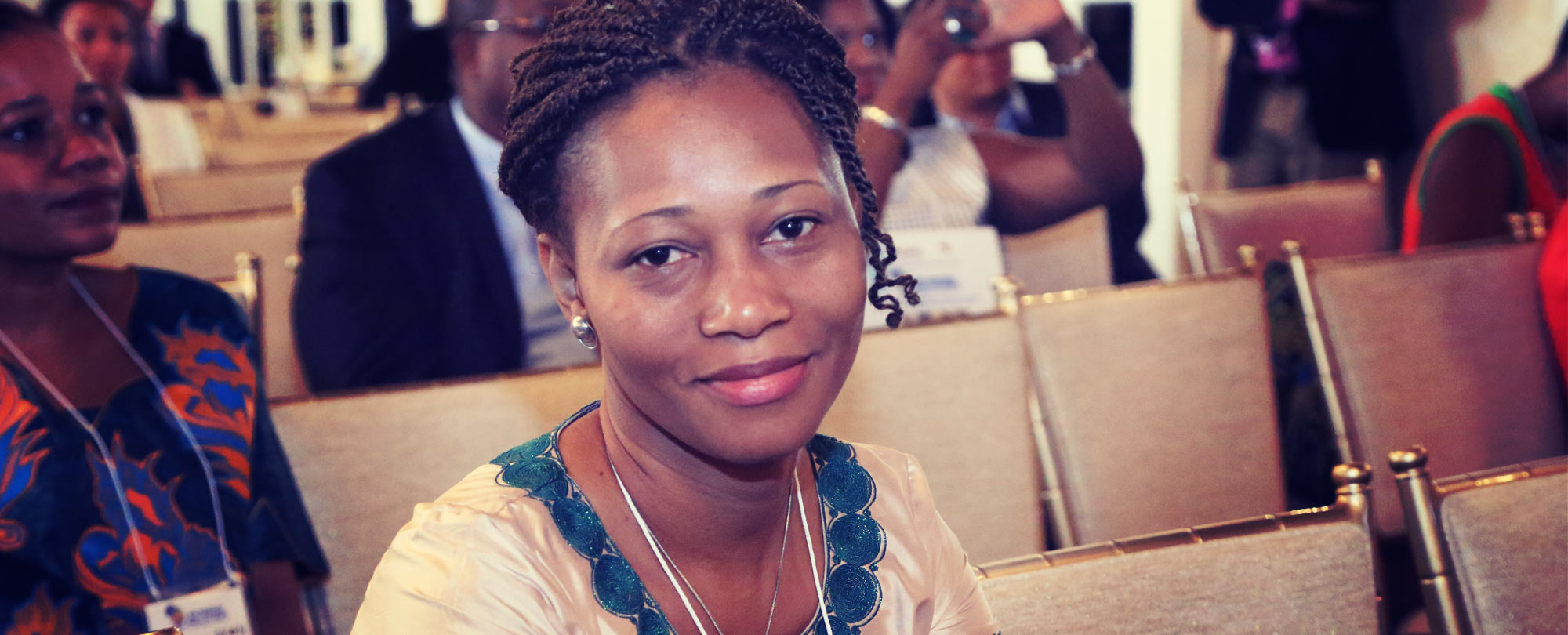As Africa’s middle class starts to emerge, propelled by growth and urbanisation, many diaspora Africans are choosing to return to the continent.
Many of these returnees, known as ‘repats’, are highly educated and skilled, and while they choose to take a chance on new opportunities back ‘home’, the process of adjusting to mentalities and business practices can be brutal.
Each Friday, for six weeks, I will share the story of a young, female, West African ‘repat’. Whether these women are operating on the not-for-profit side, or serving artists, or launching creative businesses, or venturing into public service, or just opting for non-traditional corporate careers, the momentum is real, leading to the future construction of open nations in the continent.
This week I speak to Kadija Bah in Guinea.
Kadija Bah had an early start as entrepreneur, when she opened a kiosk selling drinks and sandwiches at a public school in Conakry. She was 16 and looking to save money while in high school – as many teenage girls do in her native city – in order to fund her next move.
She knew that she was good at selling, at building a rapport with her customers but she also wanted to attend and graduate from university. She enjoyed taking theatre and acting classes, so she started learning more about the world of performance and entertainment.
The decision to repatriate, which she made in 2011 while living in Canada, wasn’t an easy one.
She was also interested in the welfare of her fellow Guineans, having helped out on an HIV-prevention programme supporting an investigation into the sexual health of young girls. But when it came down to imagining a future, a profession, with all those options facing her, she knew that it would be about making a real difference in the local community.
Fast forward 25 years, and 41-year-old Kadija is the head of operations for Bolloré Bluezones, the French conglomerate Bolloré Group’s social empowerment programme which supplies clean energy, a Wi-Fi connection and drinking water – in addition to a business incubator and infrastructure for sport and culture – to youth in several underserved communities across the Guinean capital.
The decision to repatriate, which she made in 2011 while living in Canada, wasn’t an easy one. After high school and undergraduate studies in languages and literature in Conakry, she had embarked on a ten-year journey that took her to Paris, Montreal and Toronto.
In Paris, she furthered her studies in communications and in Montreal, she was able to obtain an advanced degree in the arts before securing a job at the National Film Board of Canada, the government agency that produces and distributes Canadian films. Then, she found a new opportunity in Toronto, working at a federal agency that was responsible for the country’s infrastructure.
It didn’t take her long to notice the lack of professionalism, which came as a culture shock.
‘Everything changed for me in 2011,’ she admits. ‘I saw that there was a new regime in Guinea, and that the new president had been democratically elected. With that election came many promises, which were all about growth and development. That is when I made the decision. I felt that I could apply to the challenges facing my country some of the skills I’d accumulated in France and Canada.’
When she came back, she chose to work in the nascent entertainment industry. It didn’t take her long to notice the lack of professionalism, which came as a culture shock. ‘I had left Guinea to pursue new opportunities, but when I came back ten years later, it felt that the country had gone backwards. It really did feel like we were now 20 years behind. My first year was all about complaining, and feeling frustrated. Everyone was late; most of the work was sloppy; no-one seemed to care.’
She relaunched a company she had founded in 2000, called Ladies In Management.
She soon reverted to her entrepreneurial instincts and relaunched a company she had founded in 2000, called Ladies In Management. Now, the company would be repositioned as a communications and events agency, with in-house production capabilities.
The Kadija Show on Guinea’s national television network RTG came out of this venture, giving her an opportunity to interview (and learn from) role models like Lamine Guirassy, a young Guinean who had launched the successful local radio station Espace FM with less than US$5,000 dollars in funding.
Then, in 2013, ‘after a year of trying so many different things and working on so many different projects,’ she and her (now deceased) friend Souleymane Koly (a well-respected Ivorian impresario and cultural entrepreneur) had an idea. What if Conakry’s abandoned railway station was transformed into a big cultural space that fostered creations and collaborations between emerging Guinean artists?
She pitched the idea to Jean-Michel Maheut, the director of Bolloré Group’s Guinean subsidiary. Turns out Maheut was looking for a head of communications who would also oversee the company’s sustainable development efforts. He hired her, and within a year the Bluezones project was launched in Guinea.
Find out more at guinee2020.com
